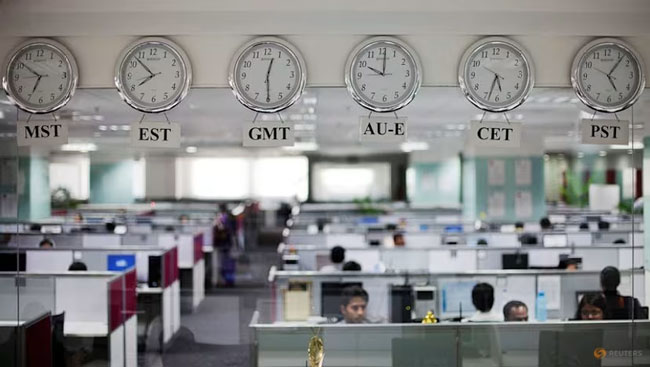India’s IT sector nervous as US proposes outsourcing tax
September 11, 2025 01:10 pm
India’s massive IT sector faces a lengthy period of uncertainty with customers delaying or re-negotiating contracts while the U.S. debates a proposed 25 per cent tax on American firms using foreign outsourcing services, analysts and lawyers said.
The sector is likely to be on the receiving end of a bill which, though unlikely to pass in its nascent form, will initiate a gradual shift in how big-name firms in the world’s largest outsourcing market buy IT services, they said.
Still, with U.S. firms having to pay the tax, those heavily reliant on overseas IT services are likely to push back, setting the stage for extensive lobbying and legal battles, analysts and lawyers said.
India’s $283 billion information technology sector has thrived for more than three decades exporting software services, with prominent clients including Apple, American Express, Cisco, Citigroup, FedEx and Home Depot. It has grown to make up over 7 per cent of GDP.
However, it has also drawn criticism in customer countries over job loss to lower-cost workers in India.
Last week, U.S. Republican Senator Bernie Moreno introduced the HIRE Act which proposes taxing companies that hire foreign workers over Americans, with the tax revenue used for U.S. workforce development.
The bill also seeks to bar firms from claiming outsourcing payments as tax-deductible expenses.
The bill could not have come at a worse time for India’s IT sector, which is struggling with weak revenue growth in its mainstay U.S. market as clients defer non-essential tech spending amid inflationary pressure and tariff uncertainty.
“The HIRE Act proposes sweeping changes that could alter the economics of outsourcing and significantly increase the tax liability associated with international service contracts,” EY India’s compliance head Jignesh Thakkar said.
In some cases, combined federal, state and local taxes could push the levy on outsourced payments as high as 60 per cent, Thakkar said.
“While its partisan proposal may seem initially attractive, it’s ultimately an artificial cost which makes organisations less competitive and profitable globally,” said Arun Prabhu, partner at Cyril Amarchand Mangaldas.
Even so, the idea is gaining traction. This month, White House trade adviser Peter Navarro reposted a call from far-right activist Jack Posobiec for tariffs on services, not just goods.
“When political noise turns into regulatory risk, clients quickly insert contingencies, reopen pricing and demand delivery flexibility,” said HFS Research President Saurabh Gupta.
“Clients will simply take longer to sign, longer to renew, and longer to commit transformation dollars,” Gupta said.
Industry body Nasscom and IT firms Tata Consultancy Services, Infosys, HCLTech, Tech Mahindra, Wipro and LTIMindtree did not respond to requests for comment on implications of the bill.
BACKLASH BECKONS
Companies are likely to lobby hard against the proposed bill and challenge it legally if passed, legal experts and industry watchers said.
“A bill like this would probably face a lot of backlash from U.S. companies that rely heavily on outsourcing, who would likely bring litigation to challenge various aspects of the bill, if it were ever to be passed into law,” said Alcorn Immigration Law CEO Sophie Alcorn.
Sweeping restrictions are unlikely given the practical hurdles in enforcing the bill’s provisions, experts said.
“More likely is a diluted version, with narrower provisions or delayed enforcement,” said HFS Research CEO Phil Fersht.
The bill could also affect U.S. firms’ global capability centres (GCCs), which have evolved from low-cost offshore back offices to high-value innovation hubs that support operations, finance, research and development.
“It will be hard to pull back from existing work, but new set-ups and expansion may get impacted,” said Everest Group partner Yugal Joshi.
The proposed tax will impact the cost arbitrage advantage that is among the deciding factors when establishing a GCC, said Bharath Reddy, a partner at CAM.
“However, the lack of availability of appropriate human capital in the U.S. will continue as a problem, and which can be addressed in the near future only through outsourcing,” he said.
Source: CNA
- Agencies












